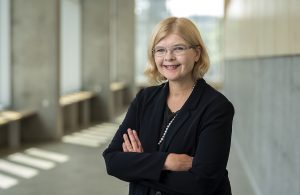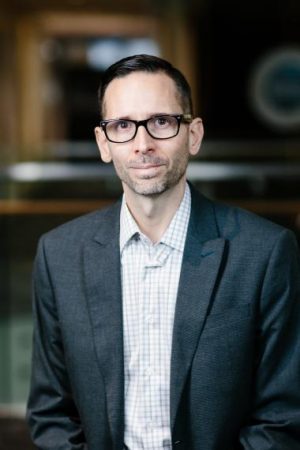Celebration and reflection: The Sprott School of Business marks 25 years of its PhD program
On October 29, Carleton University’s Sprott School of Business celebrated the 25th anniversary of its PhD in Management program with a virtual event showcasing its history while engaging in discussion about the role business schools should take in shaping the future.
“The Sprott PhD in Management program began at a time when few business schools in Canada had a PhD program. To date, only 22 out of 61 business schools in Canada have a PhD,” said Shaobo Ji, associate dean (research and international) and director of the PhD and MSc in Management programs at Sprott. “We recently celebrated a milestone of 100 graduates. Having 100 graduates in 25 years speaks to the rigor of the program and that we place an emphasis on the quality of the research that the School produces.”

Launched in the fall of 1995, Sprott’s PhD in Management has produced many graduates skilled in applied research who have gone on to successful careers in academia and industry.
“While trends and focuses have changed over the years, the Sprott PhD in Management program has remained steady due to the importance of a solid understanding of theory and practice.”
The celebration event featured a panel discussion to look ahead to what’s next with:
- Dana Brown, dean of the Sprott School of Business;
- Shantanu Dutta (PhD/06), interim vice-dean (research) at the University of Ottawa’s Telfer School of Management; and,
- Sean Lyons (PhD/04), associate dean (research and graduate studies) at the University of Guelph’s Gordon S. Lang School of Business and Economics.
“Will the future be the same as it is now? No. Will it be the same as it was in the past? No, probably not,” Dana said.
She spoke about the opportunities arising from the changes going on in the world right now, and how they’re paving the way for this transformed future. She said that the enhanced use and understanding of technology, and its strength, not only allows for new opportunities for teaching, research, and accessibility but also for barriers to be broken down and connections to be forged across the world.

Shantanu added that despite the “serious challenges” brought on by the COVID-19 pandemic, it’s also “opening our eyes” to how different sectors can come together to address challenges – and how universities can look to each other and see what works best for the students.
“Now we’re in this mode of disruption, where we have to adapt,” Sean said. “It’s pushed us to think differently about how we work, about how we interact, and about how we think about problems.”
“It forces us to think about the assumptions we have of what a course looks like, of how we interact with students, and how we engage, and who can be on our research team.”

He advised students that now is the best time to reinvent themselves and “shake things up”.
The conversation then shifted to the role and place of business schools through and beyond this disruption.
“Business schools don’t need to be the followers, we need to be the leaders,” Dana said. “We don’t need to be reactive to what’s happening in the business world – we have an opportunity to shape that.”
“We’re educating those future business leaders. We’re providing the research and the evidence that they will build their future business models on.”
She said that business schools have an obligation and a duty to “start speaking up and start reimagining what this world looks like in the future”.

Sean added that, now more than ever, business schools need to start reaching out, getting out and engaging better to stay relevant and make an impact. They need to take the work they do, and the knowledge they possess, to the people it will impact.
“The stereotypical ivory tower mentality is to assume that our significance, our relevance, is a given. And, it’s not right now. We have to get used to getting out there and communicating a lot better about what it is that we bring to the world – because we do bring something really significant.”
As the panel discussion winded down with a great sense of optimism about the role business schools can play in transforming the world for the better, the event featured a range of alumni from the PhD program talking about why the program was special to them and passing on their wisdom to the next generation of students.
“I envision that our PhD program will continue to be strong for another 25 years or more. We will gradually grow in numbers, particularly as our newer faculty members at Sprott define and expand their research agendas,” Dana said. “Like all of our programs, the PhD program will evolve with the times.”
“As we adapt for the future, we will also be preparing our students for a changing job market and opportunities, and especially for the expectation that academic research can demonstrate its value, impact and relevance to the issues of our time.”